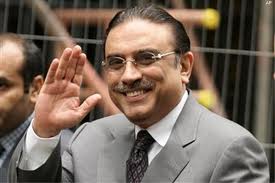
Ajmer, August 18: It was a thriller till the end. The long-awaited distribution of the promised $1 million to the dargah of Khwaja Moinuddin Chishti by Pakistan president Asif Ali Zardari finally came to fruition on Friday but not without its share of drama.
A long three-hour-long, marathon closed-door meeting between delegates from the Pakistan high commission, members of Anjuman Syed Zadgan, members of Anjuman Yadgar and those of the Dargah Committee resolved what an elaborate ceremony planned earlier in the evening could not.
Now, Rs 3 crore will be given to the Anjuman Syed Zadgan, Rs 1 crore to the Anjuman Yadgar, and Rs 1 crore 47,48,905 to the Dargah committee.
"I am happy that the matter has been finally resolved," said a much relived Pakistan High Commissioner Salman Bashir.
"We talked in detail and reached a conclusion," said Syed Wahid Angara, secretary of Anjuman Syed Zadgan.
Closed-door meeting breaks dargah deadlock
But when officials from high commission disclosed that if the money is not delivered this time then the budget will lapse and it will be difficult to pass another budget for the announcement of President Zardari, matters began to be resolved.
The Anjuman Syed Zadgan, an organization of khadims (priests) of the Dargah, has been at logger heads with the Dargah committee, constituted by ministry of minority affairs, on who is the rightful owner of the money.
Earlier, the Anjuman was to be given Rs 1.5 crore as proposed by the delegation of the Pakistan embassy while the rest was to go to the Dargah committee. "The money that was announced by the Pakistan president is for the Anjuman and no distribution is acceptable," said Syed Wahid Angara, secretary of Anjuman during the ceremony. He had said that as per the ritual of the Dargah, the money which is given as Nazarana (gift) goes only to Khadim or to Anjuman committee.
But as the Anjuman stood up to quit the meeting Pakistan high commissioner Bashir took the hand of Wahid and requested them to discuss the issue. District collector Vebhav Galaria then proposed a closed-door meeting between the Pakistan delegation, Anjuman and members of the Dargah Committee.





Comments
Add new comment